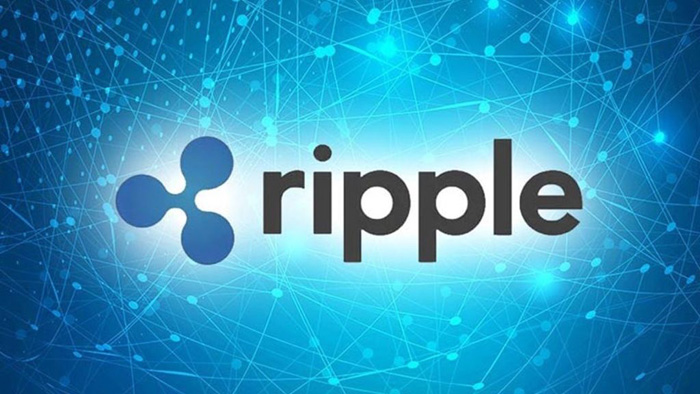Jeremy Hogan, attorney at Law Firm Hogan & Hogan in Orlando, USA, said, “Ripple launched a counterattack against the Securities and Exchange Commission (SEC), turning this case into a’winner-take-all game’. ”, Cryptonews Flash reported on January 30th.
Ripple Labs is seeking active defense by claiming that XRP is not a security token. Ripple Labs submitted its first official response to the SEC on January 29th. Ripple’s legal advisor Stuart Alderoty posted a summary of the 93-page document on his blog. As Alderotti put it, the most important question in this lawsuit is whether the sale of Ripple’s XRP is an investment contract.
The main things he posted on his blog are:
1. XRP is a virtual currency. Therefore, it is not included in the scope of the SEC’s jurisdiction.
2. Ripple has not entered into any investment contracts with XRP holders.
3. Ripple has neither promoted an ICO nor provided future tokens to attract funds, and has no relationship with most XRP holders.
4. Holding XRP does not mean that you will receive Ripple revenue or part of the profit.
5. Ripple’s XRP sales volume is less than 1% of the XRP market that has grown over the past eight years.
6. XRP Ledger is completely decentralized. The SEC is ignoring the economic realities of XRP trading.
7. The XRP held by Ripple is different from such investment contracts, such as the conversion of diamonds held by DeBeers into securities.
# “XRP is no different from Ethereum”
Attorney Rejemi Hogan mentioned Ripple’s response to a lawsuit against the US SEC through a YouTube channel and said, “This lawsuit has become a’winner takes all’ game.” In other words, he expects the loser will suffer fatal injuries as the SEC and Ripple have opposing litigation strategies.
As he pointed out, Ripple did not file a separate dismissal for the SEC’s lawsuit because he wanted a prompt decision. Typically, Ripple used the’problem delay tactic’ in other lawsuits. However, in the SEC lawsuit, Ripple abandoned these tactics to get a judgment as soon as possible.
While Hogan presented a strong point, he stressed that Ripple’s two strategies were outstanding. First, Ripple submitted an application to confirm the unofficial opinion that the SEC classified Ethereum as non-securities under the Federal Sunshine Law.
The Sunshine Act is also referred to as the’Freedom of Information Act’,’public information’ or’freedom of information’. It is a collective term that refers to the disclosure of information from government agencies to the public. We start with the right to know how this was done.” The Sunshine Act begins with the people’s right to know, but the existence of this law also prevents the secretly handling policies of decision-making officials. The Sunshine Law, as understood by the general public, has relatively broad implications. Prevent or reduce the occurrence of illegal or abuse of power by government agencies or public officials (including representatives of public opinion agencies), including the enactment of laws such as political donations, public official property reporting, lobbying, conflict of interest prevention laws, information freedom laws, and administrative procedure laws. It also has a purpose for it.
Hogan said, “If you listen to SEC’s legal claims, Ethereum certainly sold securities at a certain point in time. So, why did Ethereum announce that it did not sell securities in 2018? Ripple has found a gap here and is attempting to attack. No one knows what they will be able to find, but the matter must have caught the SEC. Ripple is very subtle, but very clever. “Because the SEC made them defend themselves once again.”
# Ripple turned the lawsuit into a’winner-take-all game’
The next thing Hogan refers to is Ripple’s’Affirmative Defenses’. Active defense is the defendant’s counterattack and raises the question Ripple wants to decide. Hogan said, “The difficulty of active defense is because the defendant is burdened with proving it,” and noted that Ripple’s second active defense should be noted. Ripple’s second active defense is, “Ripple is not a securities. Since XRP is not a security, Ripple did not violate Article 5 of the Securities Act. Therefore, there was no need to register for the sale of XRP.”
As Hogan pointed out, the SEC avoided pursuing a declarative judgment that XRP is a kind of security in the lawsuit. The SEC is just pursuing what is’the damages and remedies affected by XRP held by trust’. However, Ripple uses this concept of active defense to attempt the exact opposite. This made the lawsuit a “winners take-all game”.
“In fact, Ripple asked the court for a’complete ruling’ that the SEC did not. Ripple wants a full court ruling that XRP is not a security. If Ripple wanted to, he would have tried to escape from this lawsuit, but he is actively raising important issues.” In other words, Ripple seems to be in the direction of the lawsuit asking the court to clearly determine whether XRP is a securities or not.
“I honestly thought that Ripple would seek a cautious and prompt resolution of this case. However, I seem to have underestimated Ripple’s confidence. This active defense shows that Ripple is really confident to win the case.”
Join D
